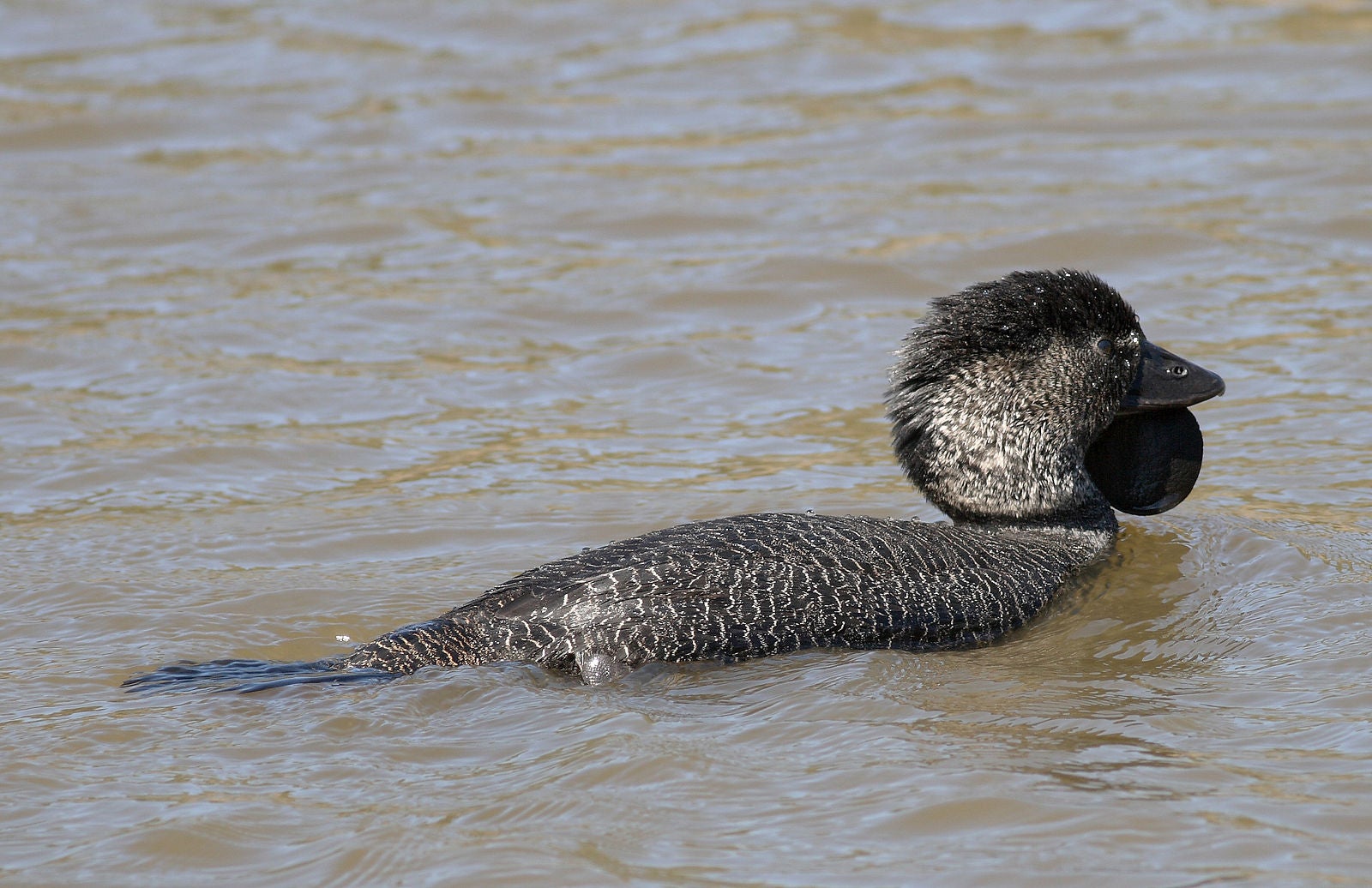‘You b*****y fool’: Australian musk ducks learn to swear like humans in scientific first
Researchers speculate the bird likely picked up the phrase from its caretaker when it was young

Your support helps us to tell the story
From reproductive rights to climate change to Big Tech, The Independent is on the ground when the story is developing. Whether it's investigating the financials of Elon Musk's pro-Trump PAC or producing our latest documentary, 'The A Word', which shines a light on the American women fighting for reproductive rights, we know how important it is to parse out the facts from the messaging.
At such a critical moment in US history, we need reporters on the ground. Your donation allows us to keep sending journalists to speak to both sides of the story.
The Independent is trusted by Americans across the entire political spectrum. And unlike many other quality news outlets, we choose not to lock Americans out of our reporting and analysis with paywalls. We believe quality journalism should be available to everyone, paid for by those who can afford it.
Your support makes all the difference.Scientists have reported the peculiar case of an Australian musk duck that learnt to say “you bloody fool,” most likely from a former caretaker.
The research, published in a special issue of the journal Philosophical Transactions of the Royal Society of London B, demonstrates the presence of advanced vocal learning in Australia’s endemic musk duck species at a level comparable to that of songbirds and parrots.
According to the scientists, including Carel ten Cate from Leiden University in the Netherlands, the independent occurrence of this trait in musk ducks, can provide opportunities for comparative analysis of the mechanism and function of vocal learning among different birds – shedding more light on the evolution of the trait in humans.
“Acquiring vocalisations by learning them from other individuals is only known from a limited number of animal groups. Here, we provide evidence for vocal learning in a member of a basal clade of the avian phylogeny: the Australian musk duck,” the scientists wrote in the study.
In the research, the scientists assessed “Ripper” the musk duck, who was raised from a “fresh egg” at the Tidbinbilla Nature Reserve South West of Australia’s capital Canberra in 1983.
The musk duck had learnt to imitate the sound of a slamming door as well as vocalising a phrase that sounds like “You bloody fool.”
Recordings of Ripper making these sounds were made in a Sony Walkman Professional cassette recorder and a Sennheiser MKH 816 microphone on July 19 and 26, 1987, at a time when the bird was about four years old.
In these recordings, made by the now-retired Australian scientist Peter J Fullager, the duck could be heard vocalising dozens of times within a few minutes each in about intervals of four to five seconds.
While the scientists do not know exactly how Ripper would have learned to utter the phrase, they speculate it was likely something his caretaker said, and the bird picked it up.
“Unfortunately, all documents from Tidbinbilla were lost in the wildfire that swept through the reserve in January 2003 making it difficult to establish all the exact details,” the study noted.
In another observation, the scientists said a male musk duck raised at Slimbridge Wildfowl Trust (UK) was observed producing an imitation of the characteristic cough of his bird keeper when it was about two years old.
But since there are no recordings made of these vocalisations, they say the observations cannot be confirmed independently.
“These sounds have been described before, but were never analyzed in any detail and went so far unnoticed by researchers of vocal learning,” the researchers wrote in the study.
The scientists say the brain region in the birds known as telencephalon, involved in vocal learning in songbirds and parrots, is also relatively bigger in waterfowl than in other avian groups.
They speculate that the vocal learning trait may have evolved once in the common ancestor of these birds, and subsequently lost in some lineages.
“Vocal learning in the musk duck would represent a case of independent evolution, raising many questions ranging from the neural and behavioural mechanisms involved to the evolutionary and adaptive background of vocal learning in this species,” the scientists wrote in the research.
They call for a more extensive and systematic study of the trait in the Australian musk ducks and other species belonging to this clade.
Join our commenting forum
Join thought-provoking conversations, follow other Independent readers and see their replies
Comments